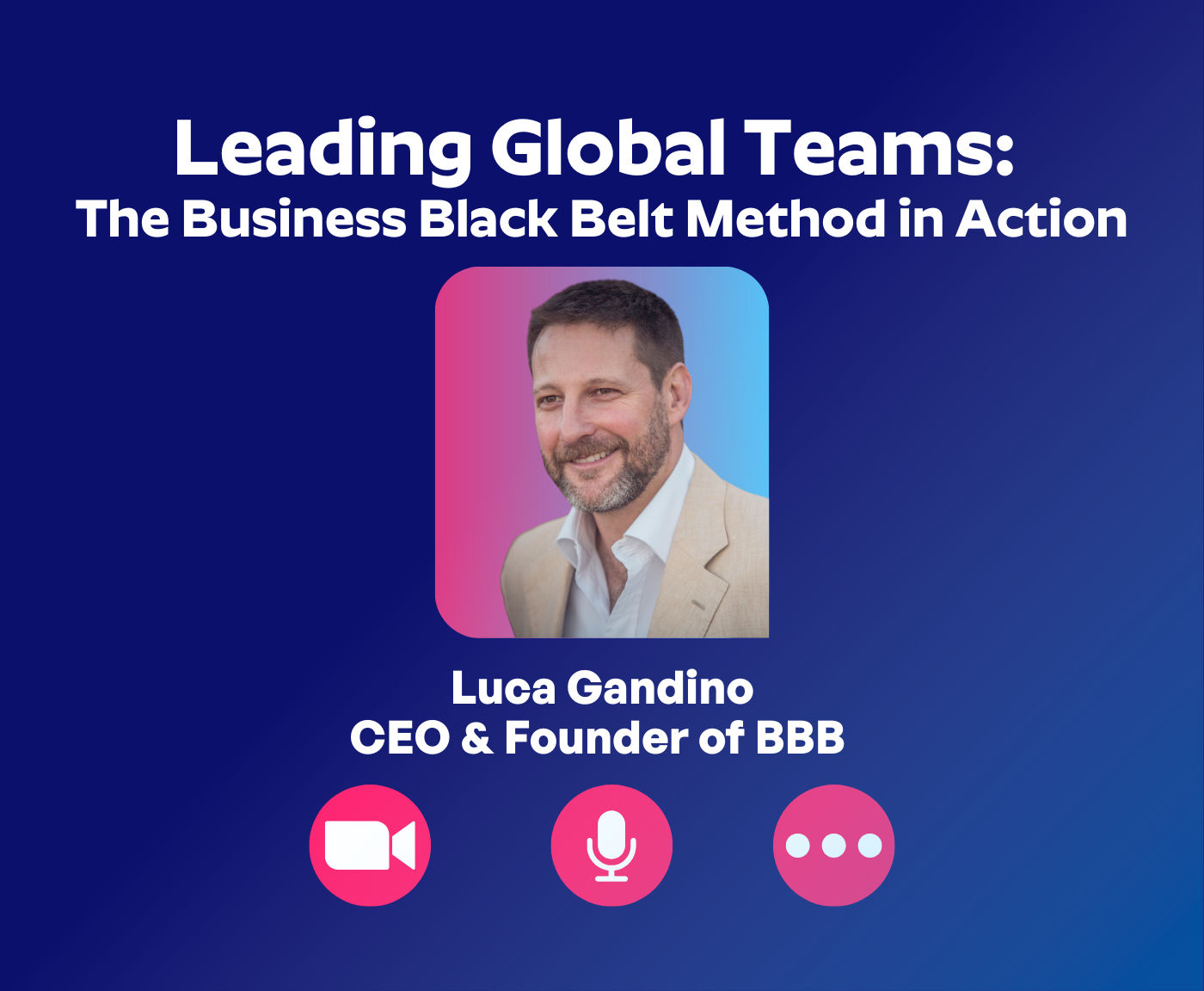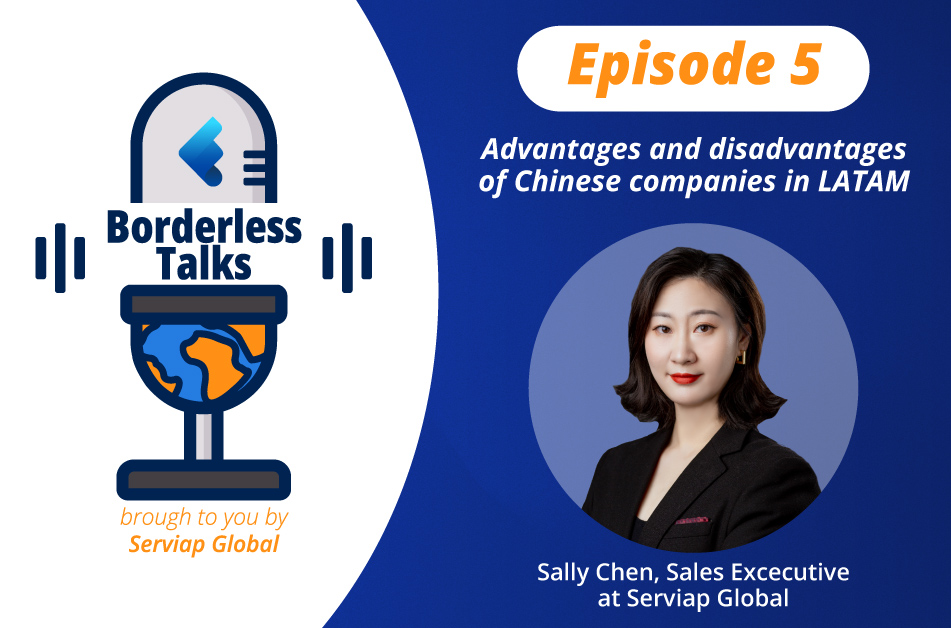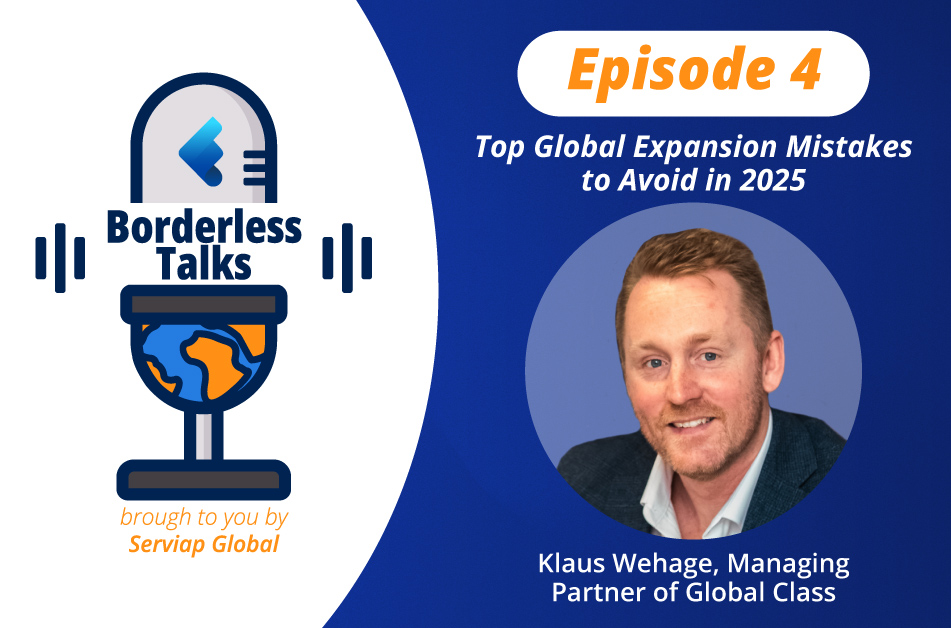Table of Contents
Southeast Asia comprises emerging, fast-growing markets where an increasing number of international companies are tuned into the availability of skilled talent at competitive rates, with the Philippines an outstanding option in the region. If you are interested in hiring in the Philippines without having to set up a local entity, two strong choices are available.
SEE ALSO: Call center outsourcing: 5 great destinations to consider
In both cases, you will be able to have local professionals reporting directly to you without hiring them directly. However hiring via an employer of record (EOR) and hiring international independent contractors each come with their own advantages, and choosing which is best for you will depend on the type of work you need people to perform, among other services.
If you are interested in hiring in the Philippines without establishing a local entity, contact us for more information.
The Filipino market at a glance
The Philippines is an archipelago of more than 7,000 islands, where economic development has seen the services sector play an increasingly important role in the economy over recent years, so that today it generates more than 60% of GDP.
The growth of the services sector has formed part of a sustained period of economic growth and increasing prosperity seen in the country since the turn of the century, as the middle class has expanded. Today many companies are interested in hiring in the Philippines because of the abundance of IT professionals and proficient English speakers, with the country emerging as a hub for call center outsourcing.


With an estimated population of over 110 million, the Philippines is among the 15 most populous nations in the world. Manila is the country’s sprawling capital, with an estimated metro population of 14.7 million people in 2023. Part of that metro area is Quezon City, the country’s most populated and prosperous urban center.
The country lived under Spanish rule for centuries, then under US tutelage for decades, which is reflected in its diverse culture, including many Catholic traditions and English as an official language, alongside Filipino. The currency is the Philippine peso.
While industry and services have been key to the recent growth of this free-enterprise economy, the Philippines also has a significant agricultural sector, with sugar, rice, and coconuts among its primary products. It is also home to massive pork, poultry, and fishing industries.
To boost the growth of the Philippine economy through the private sector, the government has temporarily exempted specific new industries from paying taxes. It also offers attractive loans to locals who want to launch a small or medium-sized business in this island territory, meaning there are plenty of contractors available.
The benefits of hiring in the Philippines
Since its rapid growth at the turn of the century, hiring in the Philippines has become a popular way to find IT workers, offering talent to international companies looking for highly skilled professionals at competitive prices.


Since English is an official language of the nation, its inhabitants have a high level of proficiency, meaning that hiring in the Philippines is unlikely to face a language barrier. In addition, primary education is compulsory, vocational schools offer technical training, and dozens of state universities and colleges focus on new technologies.
As a source of IT specialists, the country is a significant hub for computer and electronic products. Its five most lucrative exports include integrated circuits, office machine parts, electrical transformers, insulated wiring, and semiconductor devices.
Regarding its people, contemporary Philippine society consists of nearly 100 ethnic groups, with traditions and more than 150 languages. However, the dominant culture is Christian, with significant celebrations like Christmas and Easter.
Hiring in the Philippines without a local entity: an EOR
The simplest and fastest way of hiring in the Philippines without an entity is via an employer of record (EOR), so below we tell you what these organizations are, the benefits of working with them, and how you can hire professionals through their international services.
What is an EOR: characteristics and conditions
An employer of record (EOR) is an organization responsible for finding, hiring, and managing personnel on behalf of another company, always in compliance with the local regulations where it offers its services and according to the clients’ expansion and budget needs.
The EOR, apart from having extensive knowledge of hiring in the Philippines, has established entities, so companies will not have to worry about setting up a subsidiary. This process can be time-consuming and costly. Instead, organizations can leverage these resources to scale the business globally.
These third parties also have established recruitment networks, so they can find the best talent when hiring in the Philippines and bring them into any firm that requires their services. The EOR will handle all recruitment procedures, but employees depend directly on their employers.
As the human resources manager of its clients, the legal employer will assume responsibility for payroll, tax payments, benefits and deductions, work schedules, insurance, leave arrangements, and the eventual employee turnover.
The fact that an EOR has extensive knowledge of Philippine regulations helps to minimize any unexpected legal problems, possible financial penalties, and even the termination of operations. This means that hiring in the Philippines does not mean worrying about non-compliance with labor and tax laws.
Companies hiring in the Philippines through an EOR should know that this type of provider may also be known as a professional employer organization (PEO) due to their co-employment services. This third party does not usually distinguish between EOR and PEO, and for international recruitment usually refers to these services as global PEO or international PEO.
Benefits of hiring in the Philippines via an EOR
Hiring in the Philippines through an EOR has many benefits, but the main one is that companies will not have to establish an entity, as the legal employer offers this service in each territory where it operates.
Thanks to its legal entities, the EOR assumes all the legal responsibilities of hiring and onboarding employees, so its clients can forget about fulfilling certain conditions such as a minimum number of workers, business licenses, bank accounts, payment of additional taxes, etc.
In this way, entry and exit into the Philippine market can be easier, as a company hiring through an EOR can evaluate if having employees from this territory helps its international expansion or if it would be better to explore other regions.
Also, hiring in the Philippines without a local entity and via an EOR represents a resource-saving for companies, from the time it would take to set up a subsidiary and comply with bureaucratic procedures to the money that would have to invest in renting an office and all the expenses it represents.
Another benefit of hiring in the Philippines via an EOR is that these legal employers streamline the onboarding of employees into organizations, as they have established recruitment networks that make it easy to find qualified candidates in a matter of weeks.
The key to an EOR finding and hiring foreign staff quickly and in line with their clients’ expansion objectives is their local market knowledge. In addition, they have cultural insight into the territory, such as the official language, currency, and traditions, which facilitates the formation of multicultural and distributed workforces.
In addition, when an EOR takes care of their client’s human resources, firms can establish more accurate workflows and onboarding processes, improve interdepartmental communication and provide work tools to their employees.
Hiring in the Philippines through an EOR ensures compliance with labor and tax regulations, as the employer knows which laws govern and protect workers. Working with an EOR minimizes risks and avoids non-compliance and fines.
In exchange for all these benefits, an EOR will charge a fee that is usually a percentage of the payroll of each employee hired. The amount will be agreed upon when signing the contract with its clients.
Regulations that an EOR in the Philippines is responsible for
Employment contracts: contracts may be concluded orally or in writing, with details such as the position, the worker’s compensation, benefits, and the term of the employment relationship. Probationary periods may be up to six months.
Working hours: the workweek may be up to six days with a maximum of eight hours worked each day. Overtime is paid at 125% of the base salary, Sundays at 130%, and holidays at double time.
Salary: in the Philippines, the compensation varies according to the region and sector. Minimum wages range from as low as PHP 306 per day up to PHP 610 daily, which is around USD$5.50 to $11 at current exchange rates.
Vacations and public holidays: according to local regulations, employees are only entitled to five days per year. However, most employees are offered 15 days yearly. There are also regular public holidays, of which there are 10, and special non-working days that change every year.
Health insurance: the Philippine Health Insurance System helps employees and their families in case of illness, disability, or death. Employers and employees must contribute to this fund. However, an amount is automatically deducted from their monthly salary, split 4% from the employee and 10 from the employer, although this will change in coming years.
Sick leave: even though there is no mandated sick leave provision, it is agreed upon in labor contracts. In addition, those workers who contribute to their Social Security System for one year before their illness or injury can enjoy up to 90% of their salary during their disability.
Maternity and paternity leave: mothers are entitled to up to 105 days of maternity leave, while fathers can enjoy seven days off, which they must take in the two months directly after birth.
Taxes in the Philippines: the standard corporate rate is 25% for domestic companies and resident alien companies engaged in trade or business within the Philippines.
Anti-discrimination protection: the Anti-Sexual Harassment Law and the Safe Space Law protect employees from discrimination based on race, ethnicity, gender, sex, sexual orientation, religion, or social status.
How to recruit through an EOR in the Philippines
For hiring in the Philippines without a local entity and through an employer of record, companies must find a reliable EOR with a good track record, know the local market, understand their expansion needs, and fit their budget.
Then, with the help of this EOR, the expanding company will have to define the profile of the international employees it needs to integrate into its organization, from the knowledge it should have to their specific skills, experience, and abilities.
Thanks to the local recruitment networks of the employer of record, job applications will soon follow. The EOR will start a preliminary screening of candidates until they find the profiles that best match the requirements of the vacancy or vacancies.
The complete profiles will move on to the next phase, the initial interviews. After being evaluated, the process will continue with the best professionals, who will be interviewed in-depth by either the future employer or one of the EOR’s hiring managers.
Once the candidates have passed all the filters, such as the assessment of technical knowledge and interpersonal skills, and have been selected by their future employer to join the company, the EOR will assume responsibility for hiring according to local standards.
Contracts can be drawn up and signed after sending out job offers and agreeing on salary, benefits, and working hours. Then, while the EOR takes care of the administrative tasks related to recruiting international employees, the employer can start managing the relationship with its new workers.
Hiring in the Philippines as international independent contractors
In case you need another option for hiring in the Philippines, companies can also acquire talent as international independent contractors. Let’s have a look at what they are, what makes them different from a full-time employee, what the benefits and risks are, and how to hire employees through this modality.
What independent contractors are and how they differ from full-time employees
An independent contractor (IC) is a person or group who works on their own for a particular project or period. Although they often function as full-time employees, from a legal point of view, they work for their own company, which provides services to the employer.


The duration and type of contract an international independent contractor signs depends on the assignment for which they are hired, and it could be for a few months, weeks, or even long term.
As a freelancer, the IC determines their schedule and working hours so that they may have several employers simultaneously. In contrast, a full-time employee has a fixed timetable set by the company, during which they are expected to be available.
Independent contractors are responsible for working with their tools and equipment, while full-time employees carry out their activities with equipment provided by their company.
In terms of pay and benefits, an IC is not on the payroll, is paid on a project basis, and does not have the same benefits as an employee, such as health insurance, paid time off, or a retirement plan.
To avoid any non-compliance issues related to IC, it is essential to classify them correctly. Therefore, the contract you enter into with them should check that they are independent contractors, not employees.
Hiring in the Philippines: benefits and risks of using independent contractors
Hiring professionals in the Philippines as international independent contractors has many benefits but also certain risks that are worth considering.
One of the advantages of using international independent contractors is their cost-effectiveness, as they do not usually receive benefits, which is a cost-saving for companies.
They are also experienced professionals with specialized skills and knowledge. Additionally, they offer their services for specific projects and are not obliged to work a certain number of hours, which provides companies with greater flexibility.
However, it is also important to note that choosing ICs when hiring in the Philippines carries certain risks such as compliance with tax and labor laws related to the correct classification of these collaborators.
In this sense, an IC is not covered by the same legal protections as a full-time employee, so employers have different responsibilities toward them.
Also, monitoring and ensuring the quality of an independent contractor’s work can be complicated, as they are subject to a different level of supervision than full-time employees.
How to hire a international independent contractor
Recruiting international independent contractors in the Philippines is more accessible, smoother, and less risky when working with an employer of record (EOR).
An EOR hires professionals on behalf of its clients through its legal entity in the Philippines, where it also has an established recruitment network capable of quickly identifying strong candidates for the position required by the client.
The EOR will also ensure compliance with all local laws, which means that the company needing an IC will not have to worry about the legal inconvenience, potential financial penalties, or loss of reputation that can accompany non-compliance when hiring in the Philippines.
An employer of record will be able to hire professionals as contractors or as direct employees. In both cases, the person hired will report directly to the client. At the same time, the EOR will take care of any administrative needs associated with them.
What if you want to set up an entity later?
If you plan to stay in the Philippine market indefinitely or need to hire many employees, setting up an entity will be the best for your business. However, to start working in this country quickly and smoothly, relying on an EOR will be the short-term solution.
While you decide whether the entity you need is a simple representative agency, a branch office, or a foreign subsidiary, your trusted EOR can help you with future hiring in the Philippines thanks to its recruitment networks.
Establishing an entity does not have to end your working relationship with an EOR in the Philippines. It can become a crucial part of your international growth by supporting you with recruitment and human resource management.
Many EORs also assist with permits and visas as a stand-alone service. In addition, if you plan to take your business to other Southeast Asian markets, these employers know the local market, so they can facilitate your expansion into this region and continue to provide recruitment support.
Serviap Global offers hiring options in the Philippines without setting up an entity
Serviap Global offers options for hiring in the Philippines without a local entity, either through its international PEO / EOR services, international independent contractor recruitment, or talent acquisition, for those looking to hire directly.
We are a family business with roots in Mexico, where we began operating in 2010 before expanding throughout Latin America and the rest of the world to over 100 countries.
Contact us today to find out how we can help you.
If you were interested in this article about options for hiring in the Philippines without an entity in this thriving Asian nation, check out the rest of our coverage.






























